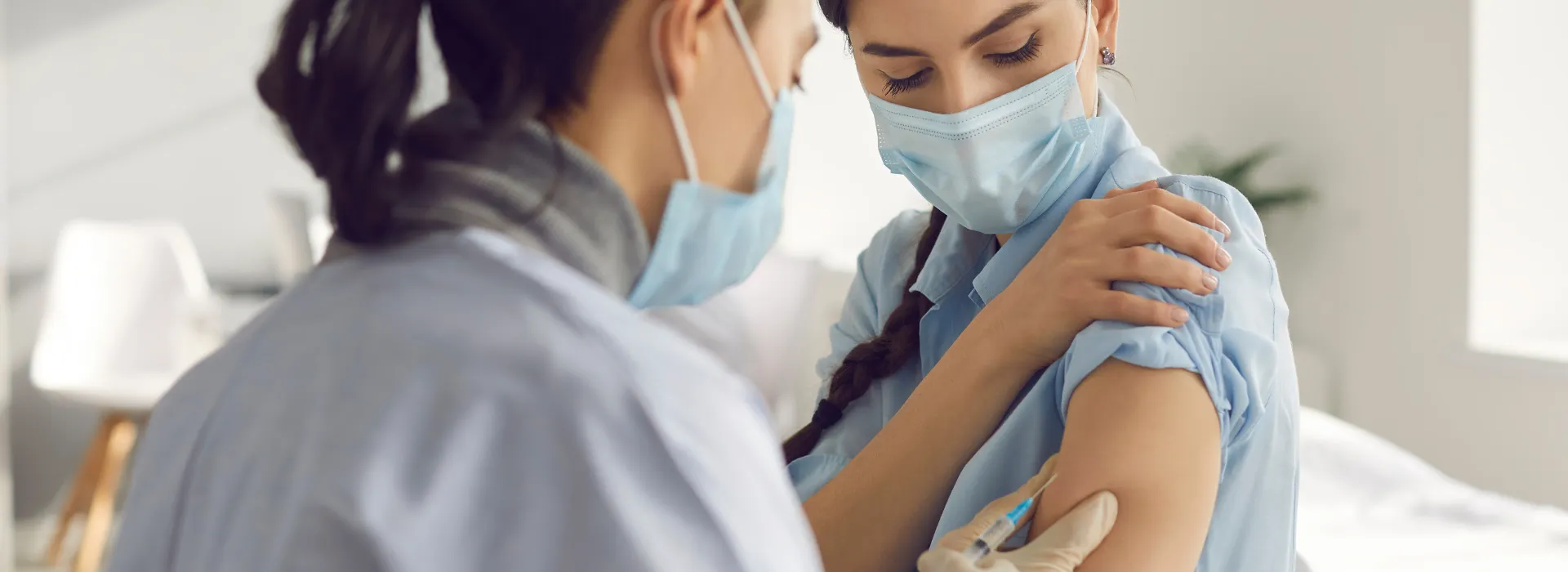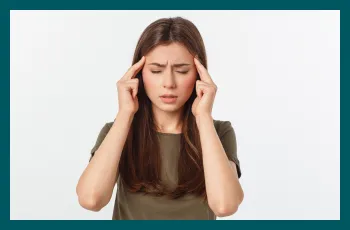COVID-19 oral antiviral medicines: Your questions answered
Written by the editorial staff writer at Hola. Reviewed by Dr.Gosagan Gopalakrishnan, BSc (Hons), MBChB, DRCOG, MRCGP, FRACGP and Dr. Ammar AL-ANI, MBChB, CCBST, AMC. Blog updated on 31 October, 2025. Originally published on 10 April, 2025.

Contents

Overview
Since the onset of the pandemic, there have been significant advances in COVID-19 treatment, including the introduction of oral antiviral medications. These medicines inhibit the virus's capacity to replicate within the body. For individuals at greater risk, they can significantly diminish the likelihood of severe illness or hospitalisation. The critical factor is timing; they are most effective when administered within 5 days of symptom onset. In Australia, these antivirals are available by prescription and can typically be obtained swiftly through telehealth services.What are antiviral medications?
Antiviral medications are prescription drugs designed to target viruses, whereas antibiotics act directly against bacteria. In Australia, the Therapeutic Goods Administration 1 (TGA) has approved specific antivirals for COVID-19 treatment. Some of these are subsidised by the Pharmaceutical Benefits Scheme 2 (PBS), making them more affordable for eligible individuals.How do COVID-19 antivirals work?
There are two primary antivirals available in Australia:- Paxlovid (nirmatrelvir/ritonavir): It obstructs an enzyme that the virus requires to replicate.
- Lagevrio (molnupiravir): It disrupts the virus's genetic material, preventing viral replication and spread.
Symptoms
Some individuals may experience a resurgence of symptoms a few days post-treatment with Paxlovid. This phenomenon is sometimes referred to as "Paxlovid rebound." Typically, this involves mild symptoms that resolve on their own. Crucially, it does not heighten the risk of hospitalisation. If your symptoms worsen, consult online GPHow long does it take for antivirals to start working?
Many people experience improvement within 2 to 3 days after starting antiviral treatment. However, even if you start feeling better, you could still be at risk of spreading the infection. Continue to adhere to the Australian Department of Health's guidelines regarding isolation3, masking, and hygiene.Side effects
As with any medication, antivirals can cause side effects that are generally mild and temporary.- Paxlovid: May cause a metallic taste, diarrhoea, or mild nausea.
- Lagevrio: Possible side effects include dizziness, diarrhoea, and headaches.
High-risk or over 70? Consult a GP to discuss eligibility for COVID-19 oral antivirals.
Who is eligible for COVID-19 antivirals in Australia?
You might qualify if you fit one of the following categories:- Over 70 years of age.
- Over 50 with specific health issues (like diabetes, obesity, or heart and lung diseases).
- Immunocompromised.
- An Aboriginal or Torres Strait Islander individual aged 30 or older with risk factors.
How much do antivirals cost in Australia?
If you meet the PBS eligibility criteria, COVID-19 antivirals are subsidised. This means you generally will pay the standard PBS co-payment (which is lower for those with concession cards). If you do not qualify, the private cost may apply, which could be higher.When should I begin taking COVID-19 antivirals?
Antivirals are most effective when initiated within the first five days after symptoms appear. Starting them earlier increases their efficacy. Do not wait for your condition to get worse. If you receive a positive test result and have underlying risk factors, schedule an immediate consultation with a GP or a telehealth service.Do antivirals make you less contagious?
While antivirals reduce the viral load in your body, they do not make you instantly non-contagious. You can still transmit COVID-19 to others. Adhere to Australia's current guidelines on isolation 3 and mask-wearing to minimise the risk of spreading the virus.How to get antivirals quickly if you test positive
Here are the steps to follow if you test positive for COVID-19:- Verify your result using either a RAT or PCR test.
- Schedule a consultation with a GP or via telehealth as soon as you can.
- The doctor will assess your eligibility, including potential interactions with medications.
- Obtain an eScript, which will be sent to your local pharmacy or delivered to your home.
What should I do if I am at higher risk of severe illness?
Specific individuals are at a higher risk of experiencing severe illness from COVID-19. In Australia, you might be regarded as a higher risk if you meet the following criteria:- You are 70 years old or older (this automatically qualifies you for antivirals).
- You are over 50 and have health issues such as diabetes, heart disease, or chronic lung conditions.
- You are Aboriginal or Torres Strait Islander and over 30 with pre-existing health problems.
- You are immunocompromised or undergoing treatments that suppress your immune system.
Getting antivirals with Hola Health
With Hola Health, you can:- Consult with an Australian GP online from anywhere across the country.
- Get an prescription for antivirals if you qualify.
- Have your prescription sent directly to your local pharmacy or delivered to your home.
- Obtain a medical certificate if you need time off work during your recovery.
When to dial 000
Call 000 without delay if you experience:- Difficulty breathing or shortness of breath.
- Chest pain or pressure.
- Severe dizziness, confusion, or fainting.
- Bluish lips or face.
Conclusion
Oral antivirals for COVID-19 have simplified and made treatment safer for many Australians, particularly for those at greater risk. They can reduce the chances of serious illness and aid in quicker recovery, but timing is crucial. If you test positive and believe you may be eligible, do not postpone. Schedule a GP or Hola Health telehealth consultation promptly to obtain antivirals safely and quickly.FAQ
1. How do antiviral medicines for COVID-19 work?
Work by disrupting the virus’s ability to replicate, hence preventing it from spreading further.
2. Can symptoms come back aft9er medication?
Paxlovid rebound is a mild return of COVID-19 symptoms after treatment, usually short-lived.
3. How long before antivirals start to work?
Antiviral COVID-19 treatment works best when started early, ideally within five days of symptoms, for faster relief and better outcomes.
4. Are there any side effects?
Common side effects include a metallic taste in the mouth, diarrhoea, and mild nausea, dizziness, diarrhoea, and headaches.
5. When should COVID antivirals be given?
COVID-19 antivirals must be started within five days of symptom onset to be effective.
6. Do antivirals make you less contagious?
COVID-19 antivirals must be started within five days of symptom onset to be effective. It is important to follow isolation guidelines.
Concerned about COVID complications? Talk to a GP for antiviral options.
Reference
Therapeutic Goals Administration - Reference link Pharmaceutical Benefits Scheme - Reference Link Australian Department of Health - Reference linkProviding consult for
- Cough
- Nausea & vomiting
- Fever
- Hayfever
- Fatigue
- Sore throat
- Acne
- Gout
- Eczema
- Rosacea
- Sunburn
- UTI
- Erectile dysfunction
- Contraception
- Morning sickness
- Morning after pill
- Prostate health
- Anxiety
- Depression
- Stress
- Grief & loss
- Premature ejaculation
- Asthma
- Blood pressure
- Diabetes
- Cholesterol
- Migraines & headaches
- Allergies
- Heartburn & reflux
- Sleep disorder
- Gastro
Related Articles
Disclaimer
This blog is for general informational purposes only and does not indicate that Hola Health provides all treatments or preventive measures mentioned. It is not intended to be a substitute for professional medical advice. Always seek the guidance of your doctor or other qualified health professional with any questions you may have regarding your health or a medical condition. For emergencies please immediately contact 000. Any medical topics discussed are intended to educate, not to imply availability through Hola Health.




